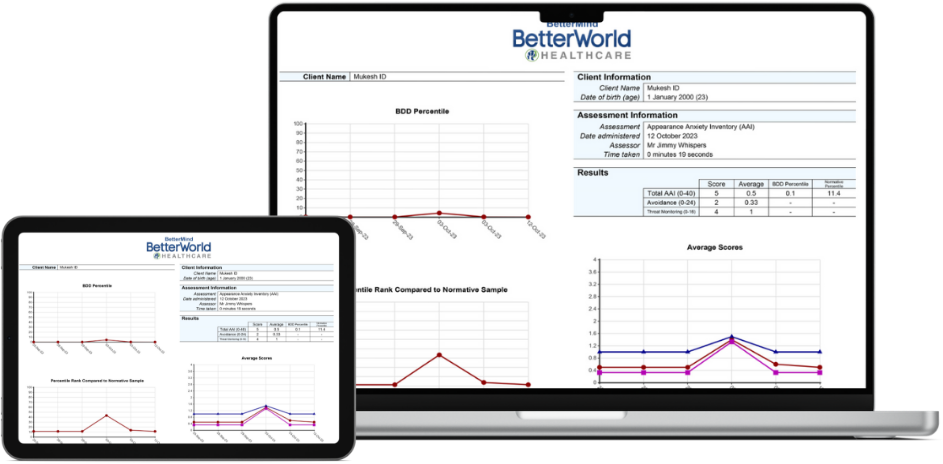The Kessler Psychological Distress Scale (K10)
Assessments
Description
The K10 is a psychological screening tool designed to identify adults with significant levels of psychological distress so that they may be appropriately managed. It has been widely used in the United States as well as in Australia, where it has been included in the Australian Survey of Mental Health and Wellbeing (1997) and the Australian National Health Surveys.
Validity
It has been validated for use by Professor Gavin Andrews and research has revealed a strong association between high scores on the K10 and a current CIDI (WHO Composite International Diagnostic Interview) diagnosis of anxiety and affective disorders. There is a lesser but significant association between the K10 and other mental disorder categories and with the presence of any current mental disorder (Andrews & Slade, 2001). Sensitivity and specificity data analysis also supports the K10 as an appropriate screening instrument to identify likely cases of anxiety and depression in the community and to monitor treatment outcomes.
Interpretation
Scores range from 10 to 50 with higher scores indicating a greater likelihood of having a mental disorder, or a higher severity of psychological distress. Scores can be split into four main categories. People seen in primary care who score;
under 20 are likely to be psychologically well,
20-24 are likely to have a mild mental disorder,
25-29 are likely to have moderate mental disorder,
30 and over are likely to have a severe mental disorder.
13% of the adult population will score 20 and over and approximately 25% of patients seen in primary care will score 20 and over. This is a screening instrument and practitioners should make a clinical judgment as to whether a person is distressed. Scores usually decline with psychological treatment. Patients whose scores remain above 24 after treatment should be reviewed.
Developer
The scale was developed in 1992 by Kessler for use in population surveys.
Try it and see how BetterMind can enhance your practice

Support
Frequently Asked Questions
You’ve got questions, we’ve got answers. Below you can find answers to some of the most frequently asked questions. If you can’t find the answer you’re looking for, please feel free to reach out to us at info@betterworldhealthcare.com.
I can’t open test results within the Web Browser
Assessment result PDFs are opened in a new tab within the web browser. If you click the results but they do not open, your browser will be blocking the popup. To resolve this, after you have pressed the test result, look out for an alert at the top of your browser notifying you that a pop-up has been blocked, then click "Allow".
I have forgotten my password. How can I reset it?
If you have forgotten your password please press “forgot password” within the app, or on the Web Browser App login page (https://app.bettermind-app.com/login). You will receive a new temporary password via email.
Can a Practitioner access BetterMind from their Smartphone?
No, A Client /Patient can answer assessment questions on a smartphone but the Practitioners/ Users can't administer BetterMind using a Smartphone. A computer, laptop or tablet will have to be used.


